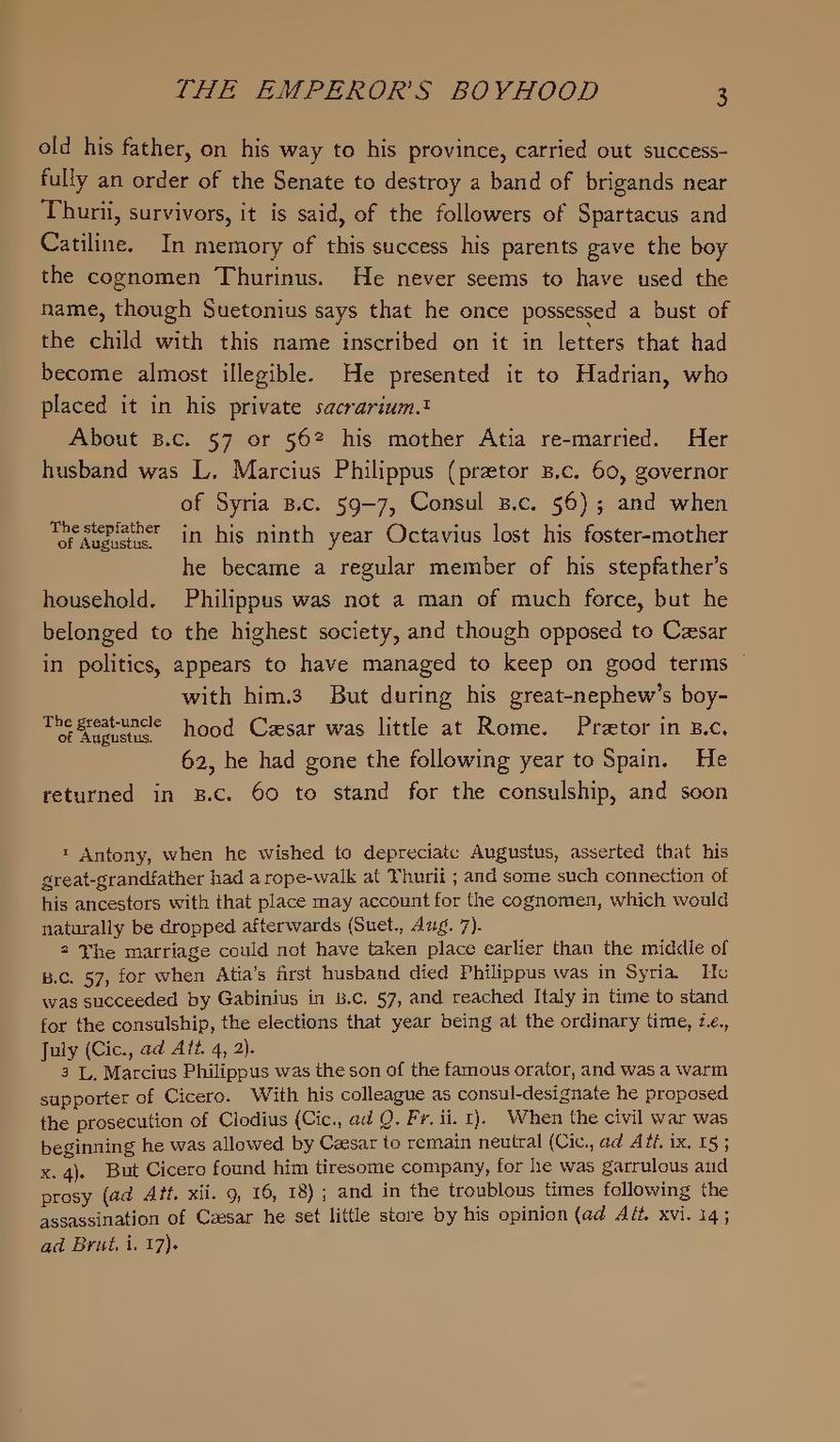old his father, on his way to his province, carried out successfully an order of the Senate to destroy a band of brigands near Thurii, survivors, it is said, of the followers of Spartacus and Catiline. In memory of this success his parents gave the boy the cognomen Thurinus. He never seems to have used the name, though Suetonius says that he once possessed a bust of the child with this name inscribed on it in letters that had become almost illegible. He presented it to Hadrian, who placed it in his private sacrarium.[1]
About B.C. 57 or 56[2] his mother Atia re-married. Her husband was L. Marcius Philippus (prætor B.C. 60, governorThe stepfather of Augustus. of Syria B.C. 59-7, Consul B.C. 56); and when in his ninth year Octavius lost his foster-mother he became a regular member of his stepfather's household. Philippus was not a man of much force, but he belonged to the highest society, and though opposed to Cæsar in politics, appears to have managed to keep on good terms The great-uncle of Augustus. with him.[3] But during his great-nephew's boyhood Cæsar was little at Rome. Prætor in B.C. 62, he had gone the following year to Spain. He returned in B.C. 60 to stand for the consulship, and soon
- ↑ Antony, when he wished to depreciate Augustus, asserted that his great-grandfather had a rope-walk at Thurii; and some such connection of his ancestors with that place may account for the cognomen, which would naturally be dropped afterwards (Suet., Aug. 7).
- ↑ The marriage could not have taken place earlier than the middle of B.C. 57, for when Atia's first husband died Philippus was in Syria. He was succeeded by Gabinius in B.C. 57, and reached Italy in time to stand for the consulship, the elections that year being at the ordinary time, i.e., July (Cic., ad Att. 4, 2).
- ↑ L. Marcius Philippus was the son of the famous orator, and was a warm supporter of Cicero. With his colleague as consul-designate he proposed the prosecution of Clodius (Cic., ad Q. Fr. ii. 1). When the civil war was beginning he was allowed by Cæsar to remain neutral (Cic., ad Att. ix. 15; x. 4). But Cicero found him tiresome company, for he was garrulous and prosy (ad Att. xii. 9, 16, 18); and in the troublous times following the assassination of Cæsar he set little store by his opinion (ad Att. xvi. 14; ad Brut. i. 17).
